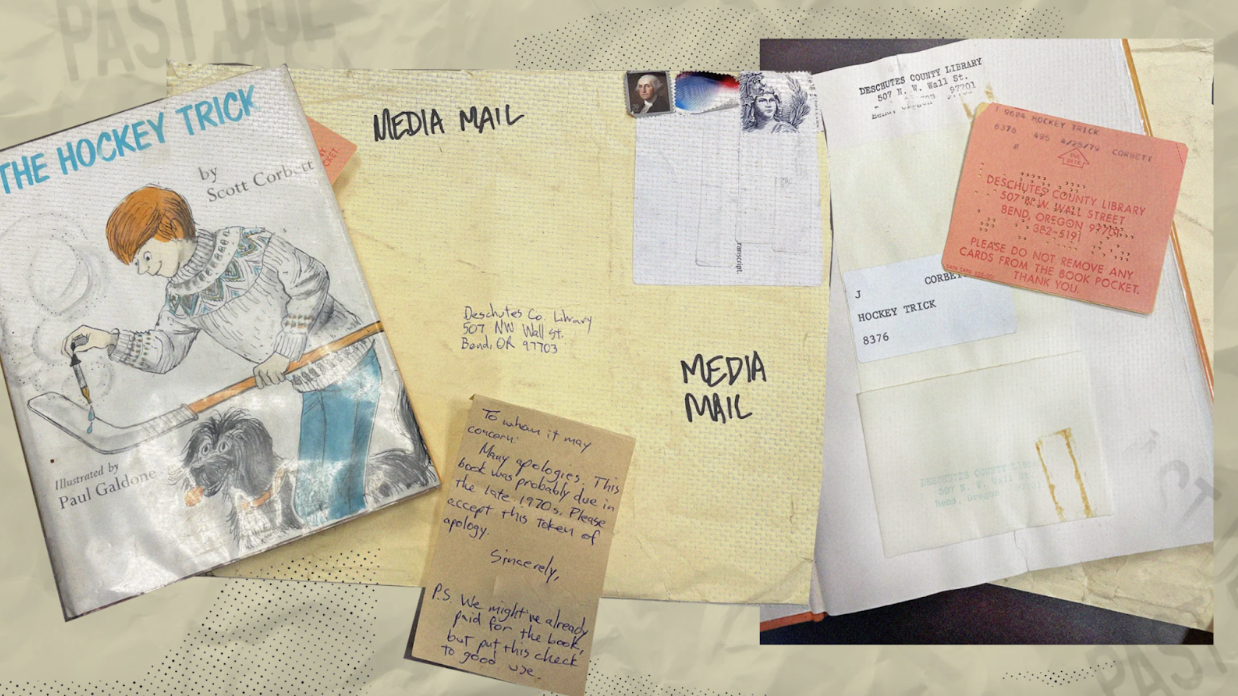Do you ever have that dream where you realized you forget to return a library book from 10 years ago? Well, for one Washington resident, that dream became a reality when they returned a book more than 40 years after checking it out.
Earlier this year, a strange small package arrived at the Deschutes Public Library. When Communications Supervisor Tina Walker Davis opened it up, she was surprised to find "The Hockey Trick" by Scott Corbett, along with a note and a $20 donation.
"Many apologies," the note read. "This book was probably due in the late 1970s. Please accept this token as an apology."
As it turns out, the book was checked out of Deschutes Public Library back in the spring of 1979. While it may give some anxiety to think about returning a book 44 years late, the library didn't seem to mind too much.
While it isn't the best form to hang on to a borrowed book for nearly five decades, this tale is truly a reminder that libraries are the perfect way to snag books, new and old, without paying a dime (save those overdue fees, obviously.) One voracious reader previously said they saved more than $8,000 in one year by visiting their local library.
With an estimated 650 million books sold around the world every single year – that's 32 million trees worth of paper – borrowing free books is the perfect way to cut down on paper waste while stacking up paper in your wallet.
Libraries are more than just a great place to find all the titles you're dying to read – you can also donate old books, utilize free services like the internet, printing, online indexes, and more. According to the American Library Association, 73% of U.S. public libraries offer support in writing job applications and honing interview skills, while nearly 50% provide additional support to entrepreneurs.
"Libraries are the great equalizer," Davis told Yahoo Life. "They're the place where anybody can come, regardless of job status, housing status, socioeconomic status. It really is a place for everybody. We — and just about every other library in the country — are working hard to make them barrier-free in every aspect: physically, emotionally, and spatially."
Davis added, "They're a place everyone can come to be free."
Join our free newsletter for easy tips to save more, waste less, and help yourself while helping the planet.









